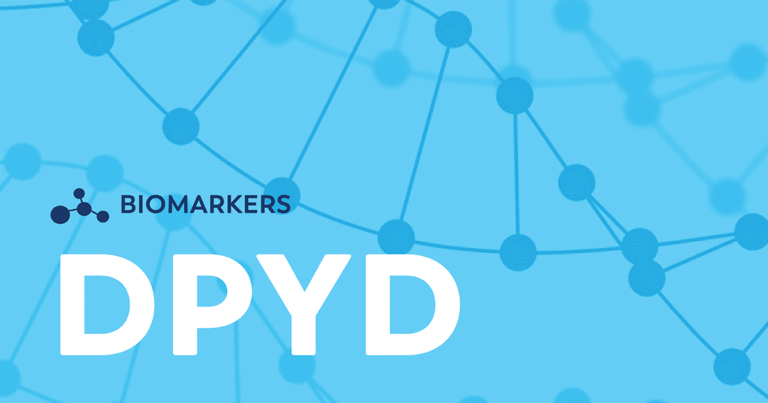5 Promising Startup Opportunities in Genomics
Did you know the global genomics market is projected to reach $31.1 billion by 2025? This represents a growth at a CAGR of 14.3%.
The field of genomics investigates an organism’s complete DNA set. It holds profound opportunities for startups across various sectors. These include healthcare and agriculture, where genomics can fundamentally shift paradigms.
In this article, we delve into five promising startup opportunities in genomics. These are: consumer genomics, pharmacogenomics, CRISPR-based diagnostics, agtech genomics, and the application of artificial intelligence in genomics.

Startups leveraging genetic information can transform precision medicine and personalized healthcare. Additionally, they can impact sustainable agriculture, disease detection, drug discovery, and more. Let’s explore the rich possibilities that genomics startups present.
Key Takeaways:
- Genomics is a rapidly growing market, expected to reach $31.1 billion by 2025.
- Startups in genomics have the potential to revolutionize various industries, including healthcare and agriculture.
- Opportunities in genomics include consumer genomics, pharmacogenomics, CRISPR-based diagnostics, agtech genomics, and the application of artificial intelligence.
- These opportunities offer potential for growth, innovation, and positive societal impact.
- Genomics startups can drive advancements in precision medicine, personalized healthcare, sustainable agriculture, disease detection, and drug discovery.
Consumer Genomics
Consumer genomics, specifically direct-to-consumer genetic testing, has seen a remarkable increase in popularity. This surge opens significant opportunities for startups in this space, offering niche and specialized testing. They focus on unique genetic markers and detailed insights into health and wellness traits. Thereby, they carve a niche in the expanding genomics market.
Direct-to-consumer genetic testing grants individuals the power to delve into their genetic composition. It provides insights into ancestry, health predispositions, and traits. This accessible approach enables consumers to take charge of their genetic data. They can thus make informed decisions about their health and well-being. Additionally, niche testing meets specific interests in fitness, nutrition, or personalized medicine.
Startups in this sector can create a distinct presence by introducing innovative genetic testing solutions. They utilize advancements in sequencing and analysis technologies for accurate, reliable results. This empowers individuals to make proactive health decisions based on informed lifestyle choices.
“Consumer genomics startups have the opportunity to challenge the status quo of the genetic testing market and democratize access to genetic information. By capitalizing on niche genetic testing options and offering specialized insights, these startups can cater to the diverse needs and interests of consumers.”
Tap into the Growing Genetic Testing Market
The genetic testing market is undergoing significant expansion, driven by interest in personalized health and wellness. A report by Global Market Insights predicts this market could reach $22 billion by 2028, growing at a 13% CAGR. This growth offers startups in consumer genomics a chance to become industry innovators.
By identifying untapped niches, startups can develop unique tests for specific demographics or offer insights on prevalent health conditions in certain populations. This differentiation can attract consumers seeking targeted genetic information.
Direct-to-Consumer Genetic Testing: Beyond the Basics
While existing companies provide comprehensive ancestry and health tests, startups have a chance to explore further. They can delve into detailed trait analyses, rare genetic markers, or wellness and preventive care. This approach opens up new avenues beyond basic genetic testing.
Advancements in genomic research allow startups to offer detailed insights into genetic health predispositions. They can also create tests centered on lifestyle factors like nutrition, fitness, or skincare. Tailored recommendations based on unique genetic profiles cater to consumers’ specific wellness interests.
These niche testing options address the varied interests and needs of consumers. They seek detailed genetic information related to their overall well-being.
Key Players in the Consumer Genomics Market
| Company | Specialization | Notable Features |
|---|---|---|
| 23andMe | Ancestry, Health Predispositions, Traits | Extensive database for genetic research |
| AncestryDNA | Ancestry, Ethnicity, DNA Matches | Largest consumer DNA database |
| Helix | Health, Fitness, Nutrition, Wellness | Platform for third-party genetic apps |
| Nebula Genomics | Whole Genome Sequencing, Privacy | Blockchain-based data sharing |
Pharmacogenomics
Pharmacogenomics explores the relationship between an individual’s genetics and their drug responses. This realm presents startups in the healthcare sector with unprecedented opportunities. These entities can spearhead the discovery and endorsement of genetic biomarkers. Consequently, they could radically transform disease diagnosis, treatment, and prevention methodologies.
Personalized medicine becomes a reality with pharmacogenomics. It allows treatments to be customized according to a patient’s unique genetic profile. Startups can harness genetic biomarkers to craft healthcare solutions. These solutions are designed to maximize therapeutic outcomes while limiting adverse drug reactions.
Startups are poised to alter therapeutic development through pharmacogenomics. By pinpointing genetic markers linked to drug performance or toxicity, they can refine the drug creation process. This refinement facilitates targeted therapies and reduces reliance on trial-and-error methods.
Startups specializing in pharmacogenomics have the opportunity to pave the way for personalized medicine, genetic biomarker discovery, and therapeutic development.”-
Pharmacogenomics holds the potential to enhance patient safety and healthcare outcomes. Genetic considerations enable healthcare professionals to prescribe more efficacious medications with fewer adverse effects. The result is more efficient and tailored treatment protocols.
Personalized Medicine and Genetic Biomarkers
The fusion of pharmacogenomics with personalized medicine marks a transformative phase for the healthcare sector. Startups can employ genetic testing to pinpoint biomarkers that predict a patient’s medication response.
This insight allows healthcare providers to customize treatment regimens. Consequently, patients are assured of receiving optimal medications with minimized side effects. This personalized tactic not only betters patient outcomes but also heralds a move towards precision medicine.
Therapeutic Development and Drug Efficacy
Pharmacogenomics is pivotal in therapeutic innovation. It facilitates the identification of genetic markers that forecast drug reactions, expediting the creation of effective treatments. Personalized medicine strategies, informed by pharmacogenomics, play a crucial role in reducing adverse drug events and heightening treatment success rates.
This field’s integration into clinical trials enables the selection of patients likely to benefit from specified drugs. Such a targeted approach curtails costs linked to inefficacious treatments and bolsters therapeutic advancement.
The Future of Pharmacogenomics
The pharmacogenomics domain is ripe with possibilities for startups eager to recalibrate the healthcare landscape. By tapping into genetic biomarkers and personalized medicine, these ventures can inaugurate a new chapter of precision healthcare.
As technology evolves, pharmacogenomics’ importance in enhancing patient care and fueling therapeutic breakthroughs is set to escalate. Startups focusing on this niche are well-positioned to reimagine the pharmaceutical industry. They aim to deliver personalized healthcare solutions that uplift patient outcomes and life quality.
CRISPR-Based Diagnostics
Gene editing in diagnostics provides startups with substantial opportunities. In particular, CRISPR-based diagnostics represents a pivotal advancement. It paves the way for the detection of diseases and genetic screening. Startups can now craft solutions that pinpoint disease-causing mutations. This enables precise, targeted therapies.
CRISPR-Cas systems, found naturally in bacteria, serve as the foundation for this innovation. They can identify specific sequences within a patient’s DNA. By tailoring the CRISPR system to detect markers of diseases, startups can forge diagnostic tools. These tools facilitate the accurate, early detection of illnesses.
The scope of CRISPR-based diagnostics is immense. It has the capability to test for various diseases, including genetic and infectious diseases, and some cancers. Early detection significantly enhances treatment success. It thereby ameliorates patient outcomes.
Besides disease detection, CRISPR diagnostics aid in genetic screening. Individuals can gauge their disease risk through their genetic makeup. It’s an approach that fosters informed healthcare decisions and preventive action.
Advantages of CRISPR-Based Diagnostics:
- Highly accurate: CRISPR diagnostics pinpoint mutations with unparalleled precision, spotting disease-related genetic markers.
- Rapid results: The system’s swift DNA sequence detection cuts down diagnosis time. This expedites treatment decisions.
- Potential for point-of-care testing: It’s feasible to use CRISPR diagnostic tools in various settings. This includes remote or resource-limited areas, facilitating immediate diagnosis and testing.
- Cost-effective: CRISPR technology’s simplicity boosts cost-effective diagnostic solutions. This benefits both healthcare systems and patients.
“CRISPR-based diagnostics present an exciting frontier in gene-editing technology. Startups in this space have the potential to transform disease detection, enabling personalized medicine approaches and improving healthcare outcomes.” – Dr. Samantha Rodriguez, Genomics Expert
For startups delving into CRISPR diagnostics, forging partnerships with research bodies and healthcare providers is vital. Such collaborations are essential for translating innovation into tangible solutions. Moreover, navigating regulatory landscapes and ethical concerns is crucial to the acceptance of CRISPR diagnostic solutions.
The future is ripe with possibilities for startups engaging in CRISPR-based diagnostics. With a focus on accuracy, rapidity, and accessibility, these enterprises are set to overhaul disease diagnosis. They are ushering in a new era of personalized healthcare.
Agtech Genomics
Agtech genomics startups stand at the cutting edge, revolutionizing agriculture with genetic engineering and genomics technologies. These firms are tackling urgent challenges in sustainable agriculture. Their goals include boosting crop yields, improving nutrient efficiency, and fostering eco-friendly farming practices.
With advancements in genetic sequencing and synthesis, agtech genomics startups now have unprecedented opportunities to make an impact. They are crafting innovative solutions with the capacity to radically alter the agricultural landscape.
Improving Crop Improvement
Agtech genomics profoundly influences crop enhancement. Through genetic engineering, startups are engineering crops with beneficial traits. This innovation serves both agricultural producers and the environment.
Crops engineered in this way may resist pests, diseases, or harsh climatic conditions. Consequently, this leads to enhanced yields and a decrease in pesticide dependence. Thus, these enhancements by agtech genomics startups are pivotal to eco-sustainable agricultural practices.
Bio-Based Materials and Environmental Remediation
Furthermore, agtech genomics startups are pioneering bio-based materials and genetically engineered microorganisms for cleaning the environment. Through these efforts, they provide greener alternatives to traditional industrial materials.
Some enterprises focus on microorganisms for bioplastics production, aiming to lessen our dependence on petrochemical plastics. Meanwhile, others innovate in detoxifying soil or water through genetically engineered microorganisms, aiding environmental cleansing operations.
Creating Synthetic Vaccines
In another sector, agtech genomics startups excel in producing synthetic vaccines. Using genomics and genetic engineering, they are engineering vaccines to combat diseases in humans and animals.
These synthetic vaccines promise enhanced pathogen protection and could revolutionize traditional vaccine manufacturing. Through these genetic breakthroughs in vaccine creation, agtech genomics startups not only protect health but also advance animal welfare.
By applying genetic engineering and genomics innovatively, agtech genomics startups are propelling sustainable agriculture, crop optimization, and bio-based material development forward. Their revolutionary approaches are redefining farming practices, ushering in a more resilient, eco-conscious agricultural era.
| Benefits of Agtech Genomics | Examples |
|---|---|
| Improved crop yields | Genus plc |
| Reduced pesticide use | Indigo Agriculture |
| Sustainable alternatives to traditional materials | NatureWorks |
| Environmental remediation | TerraVerdae BioWorks |
| Development of synthetic vaccines | Inovio Pharmaceuticals |
AI in Genomics
In the realm of genomics, the integration of AI is revolutionizing our comprehension and utilization of genomic information. The exponential surge in the generation of genomic data positions startups leveraging AI algorithms and software for genomic analytics at the innovation forefront. These advancements are pivotal in shaping the future of healthcare and medicine.
AI’s role in genomics is instrumental in elucidating patterns, correlations, and insights within extensive datasets. This capability is transformative for drug discovery, personalized medicine, and enhancing healthcare outcomes. Through AI, the process of identifying disease biomarkers is expedited, enriching our understanding of genetic variations. It also aids in crafting therapies that are meticulously tailored to the genetic makeup of individual patients.
“AI in genomics has the potential to revolutionize drug discovery and development, enabling more efficient and precise identification of therapeutic targets and accelerating the translation of research findings into clinical applications.” – Dr. Emily Chen, Genomics Researcher
AI’s pivotal role extends to the analysis and interpretation of genomic data. This process offers critical insights into an individual’s disease risk, informs treatment decisions, and fuels personalized medicine. Through advanced algorithms, AI navigates through the extensive genomic data, pinpointing genetic markers linked to specific diseases and forecasting treatment responses.
This innovative approach in genomics significantly enhances the precision and efficiency of drug discovery. By processing and analyzing massive datasets, AI identifies viable drug targets and assesses the potential of drug candidates. This optimization not only curtails the time and expenses associated with new drug market introduction but also elevates the success rates of drug development endeavors.
AI in Genomics: Key Advantages
- Accelerates drug discovery and development processes
- Enables personalized medicine approaches
- Improves disease risk prediction and treatment selection
- Identifies novel therapeutic targets
- Enhances understanding of genetic variants and their functional implications
The continuous evolution of AI in genomics positions startups to profoundly impact healthcare. By harnessing AI-driven innovations, these entities can fully leverage genomic data. This, in turn, revolutionizes drug discovery and heralds a new epoch of personalized medicine.
| Applications | Benefits |
|---|---|
| Drug Discovery | Accelerated identification of therapeutic targets, improved success rate of drug candidates |
| Personalized Medicine | Precise treatment selection, improved patient outcomes |
| Disease Risk Prediction | Early detection, proactive preventive measures |
Startups in Human Genomics
Human genomics is evolving rapidly, with startups at the forefront of research and innovation. These entities exploit genetic data to advance precision medicine, ancestry testing, preventive healthcare, and more. Notable startups in this sphere include:
Quantgene: Enabling Precision Medicine
Quantgene merges deep genomic sequencing with AI to spearhead precision medicine. It deciphers vast genomic datasets, offering healthcare providers insights for personalized treatments. This approach stands to transform healthcare, enhancing patient care significantly.
Lumminary: Ancestry Testing and Personalized Recommendations
Lumminary excels in ancestry testing, granting individuals insights into their genetic backgrounds. Their advanced DNA tests uncover one’s ancestral origins. Lumminary also provides tailored nutrition and fitness recommendations, based on genetic make-up, promoting better health choices.
Phosphorus: Genomic Testing for Preventive Healthcare
Phosphorus aims to revolutionize preventive healthcare through genomic testing. By identifying genetic predispositions, Phosphorus enables proactive health measures. This shift towards prevention over treatment could significantly alter healthcare practices.
GenomiQa: Clinical Genomics and Personalized Cancer Treatment
GenomiQa leads in clinical genomics, offering genetic testing and analyses for personalized cancer care. Their services allow healthcare professionals to customize treatments based on a patient’s genetic information. This tailored approach may drastically elevate treatment success rates in oncology.
Zenome: Secure Genomic Data Storage and Sharing
Zenome addresses the critical need for secure genomic data management through a distributed platform. Utilizing blockchain and robust encryption, Zenome safeguards genomic data’s privacy and integrity. This innovation supports shared research efforts, advancing genomics and precision medicine.

These startups are pivotal to the ongoing developments in human genomics. Their work in precision medicine, ancestry tests, preventative healthcare, and data security propels the field forward. Their efforts herald a future where genomics could greatly benefit humanity, in healthcare and beyond.
Conclusion
Startups in genomics possess vast opportunities to significantly impact a range of industries. They can harness genetic information to propel healthcare, agriculture, and beyond. Consumer genomics, pharmacogenomics, CRISPR diagnostics, agtech genomics, and AI-driven innovations represent prime areas for startup innovation. This innovation can invariably transform the world for the better.
The genomics sector is on the brink of a bright future, characterized by a burgeoning job market. As the domain expands, so does the demand for skilled genomics professionals. This growth heralds a wealth of career possibilities within genomics research and technology. Opportunities abound in academia, healthcare, biotechnology, and other related sectors for those deeply invested in this field.
Significant growth marks the current state of the genomics industry. This surge stems from technological advancements and reduced genomic sequencing costs. As a result, doors have opened wider for both newcomers and established entities. The industry stands at the cusp of remolding healthcare, enhancing crop yields, discovering new drugs, and more. It promises a future where personalized medicine and sustainable agriculture become everyday realities.
In summary, genomics is a fertile ground for both startups and career-minded professionals. The sector is brimming with potential for innovation, research, and expansion. Engaging with these opportunities, startups have the capacity to harness genomics’ transformative power. This engagement will undeniably shape the future of healthcare among other industries.
FAQ
What are some promising startup opportunities in genomics?
Opportunities in genomics include consumer genomics, pharmacogenomics, and CRISPR-based diagnostics. Additionally, agtech genomics and AI applications in genomics present promising avenues.
What is consumer genomics?
Consumer genomics provides direct access to genetic testing services. These services go beyond the offerings of traditional market leaders, providing specialized genetic testing options.
What is pharmacogenomics?
Pharmacogenomics investigates the impact of genetics on drug response. Startups in this domain aim to revolutionize healthcare. They do this by developing platforms that enhance the discovery and validation of genetic biomarkers.
What are CRISPR-based diagnostics?
Startups leveraging CRISPR technology offer advanced disease detection and genetic screening solutions. They focus on identifying mutations that cause diseases. Their work facilitates precise and significantly improved treatments for patients.
What is agtech genomics?
Agtech genomics combines genetic engineering and genomic technology. The aim is to transform agriculture. Startups focus on creating bio-based materials, engineering microorganisms for cleanup, or developing synthetic vaccines.
How can AI be applied in genomics?
AI propels genomics forward by refining algorithms and software for analyzing genomic data. Innovative startups accelerate drug discovery and enable personalized medicine, substantially impacting healthcare.
Are there any startups in the field of human genomics?
Numerous startups are making strides in human genomics. For instance, Quantgene integrates deep genomic sequencing with AI for precision medicine. Lumminary offers ancestry services alongside DNA-based wellness plans. Phosphorus focuses on genomic testing for preventive health. GenomiQa applies genomic analysis for personalized cancer treatment. Zenome emphasizes secure genomic data storage and sharing.






